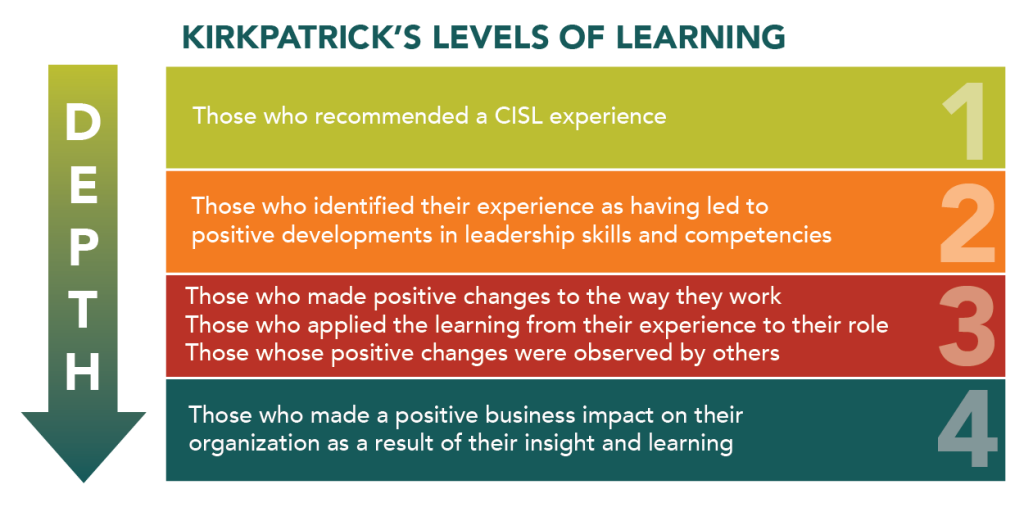The following is a guest post from Amanda Bowman via our friends at Emerging World. It has been gently edited for the RW blog. Enjoy!
Measuring the impact of your corporate volunteering program is important. In many ways, the more successful a corporate volunteer program, with more people involved and more time spent, it is likely that more resources are expended and the need to measure impact will become more crucial.
Many of us work in volunteering because of a conviction. A conviction that it is a good thing to do; and the right thing to do. And for most volunteers there’s a powerful personal feedback loop. It feels good to volunteer, to be of service to someone else and the more aligned you are with the cause the better it feels.
When this happens on our own time, it’s personal choice. However, when we volunteer on company time, the contract is somewhat different. As more companies offer employees time to volunteer during normal working hours, they are increasingly looking at what’s involved and the resources that are expended in a corporate volunteering program and want to know what they are getting for their money.
“… stories move people in a way that numbers can’t.”
The question becomes what to measure. One of the great things about corporate volunteer programs is that they create multidimensional impact. Not only is there an impact on the beneficiaries, host organizations, and their stakeholders, but also on its participants and on the business itself.
Without a compelling business impact story, programs can become unsustainable. This is particularly true for programs that leverage skills and require significant investment in planning and coordination. To answer this, Emerging World has developed a unique and effective way to measure impact on participants and on the business: a cross-company research program specifically for international corporate volunteering programs (corporate international service learning (CISL) programs). The research reaches out to participants who completed their experience in at least previous 12 months. This means that they are able to more effectively reflect on their time volunteering, while insight is gained on the long-term impact in areas including depth and breadth of learning, leadership development, career mobility, retention, and employee engagement. The study also covers aspects of program management and design, and in 2017, measuring how programs build responsible leadership will be examined.
These studies have established the first cross-company research regarding the long-term business impact of international corporate volunteering programs, and demonstrate how to measure the business impact of this approach.
One of the frameworks leveraged in these studies is Kirkpatrick’s Levels of Learning, which is used extensively in the learning and development field to measure the impact of learning interventions. The model proposes that data captured to measure learning experiences varies in quality (or depth). The easiest to achieve, but also the most flimsy is a “Level 1” reaction (i.e., did I like the experience?). This then moves through Level 2 (learning), Level 3 (behaviour change), and through to Level 4 (impact on results).
Many companies already evaluate at Level 1 and Level 2. However, deeper measurement can only be assessed over time, and many programs lack this kind of data. Emerging World methodology provides participating companies with meaningful data at the more advanced levels that help convince Learning & Development of the value of these initiatives, providing senior leaders with information on the tangible impact on business results.
The companies that have participated in the studies say it works for them because:
- The results are expressed in percentages, making them easy to understand and share with stakeholders.
- The information complements other evaluation approaches, both the immediate and medium term impact, and measuring of the social impact or impact on beneficiaries of programs.
- The study asks the same questions of participants from different companies at the same time, which allows for easy comparison.
- They are able to share experiences and gain insight into areas of program design and implementation through the benchmarking opportunities provided in the study process.
- The data can be used in different ways for different audiences to meet a variety of objectives.
- The data helps boost the business case and assess return on investment and the value of the program.
This study answers many questions, but does not provide the whole picture. Numbers and percentages are vital, but as a program manager, you must not lose sight of two other things:
- Stories are important. Having an opinion counts and stories move people in a way that numbers can’t. Having the data is not an end in itself, but it does allow you to tell a much more compelling story.
- Social impact is important and needs to be part of your messaging. The studies referenced here show that programs work more effectively when the social impact and business value are aligned.
If you’re interested in finding out more, or participating in the 2017 CISL Impact Benchmark Study (which goes live in February 2017) please contact amanda@emergingworld.com and/or visit the Emerging World website.

Amanda Bowman
Business Development & Partnerships Director, Emerging World
Follow Amanda on Twitter
About Amanda
Amanda focuses on identifying partnership, new business and service opportunities for Emerging World in the areas of Corporate Volunteering and Inclusive Business. Based in London, she brings 25 years of CSR and international development to her work and is acknowledged as a global expert in employee community engagement. Amanda is also an experienced partnership broker with a Post Graduate Certificate in Cross Sector Partnerships from the University of Cambridge.
Realized Worth is a global consulting firm that works with companies to design and implement employee volunteer programs. We focus on equipping individuals to lead programs in a scalable way, achieving impact for the company, the community, and the employee. Would you like to discuss your program with us? We’d be happy to hear from you! Email us directly at contact@realizedworth.com, or find us on Twitter, Facebook, and LinkedIn.
